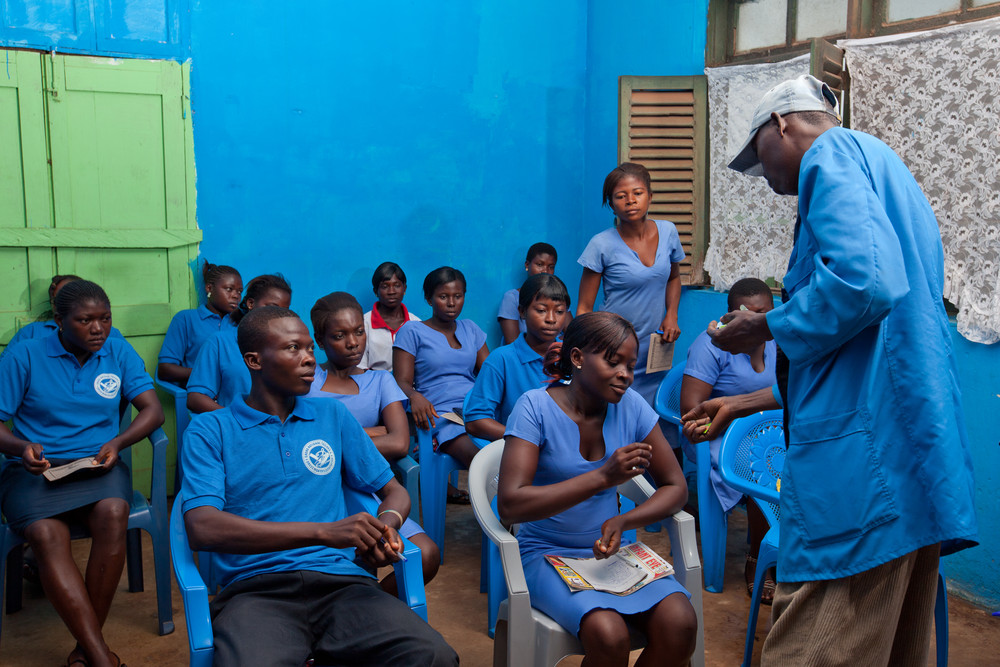Rural youth are world's largest untapped resource – IFAD President
The President of the International Fund for Agricultural Development (IFAD) is calling on developing countries to harness the potential of rural youth to help end hunger, achieve food security and improve nutrition – one of 17 Sustainable Development Goals (SDGs) recently adopted by world leaders.
The call came at a high-level side event entitled Mobilizing Generation Zero Hunger, held on the margins of the Sustainable Development Summit at UN Headquarters on Friday.
"70 per cent of the African population is below the age of 30 and more than half, close to 200 million, live in rural areas," said Kanayo F. Nwanze, President of IFAD.
Nwanze spoke to a packed gathering in New York of youth leaders from around the world, as well as prominent political, business and civil society figures.
"Rural youth are the leaders of tomorrow. They are the farmers of tomorrow, the businesses and the entrepreneurs."
IFAD co-hosted the event alongside the Food and Agriculture Organization of the United Nations (FAO), the World Food Programme (WFP) and the Government of Ireland.
The event brought together young entrepreneurs and activists from around the world, along with global leaders, policy makers and celebrities to discuss how mobilizing this generation to champion sustainable agriculture, food security and nutrition can help make zero hunger and sustainable development a reality.
Hunger still impacting millions
Despite development gains in recent years, around 800 million people still go to bed hungry every night. One billion people survive on less than $1.25 a day, and more than 70 per cent of them live in rural areas and mainly depend on agriculture.
 Young people attend the Apprentices Training Programme at the Ghana National Tailors and Dressmakers Association, Sefwi Bekwai Branch. Approximately 87 per cent of the world's 1.2 billion youth live in developing countries. ©IFAD/Nana Kofi Acquah
Young people attend the Apprentices Training Programme at the Ghana National Tailors and Dressmakers Association, Sefwi Bekwai Branch. Approximately 87 per cent of the world's 1.2 billion youth live in developing countries. ©IFAD/Nana Kofi Acquah
Approximately 87 per cent of the world's 1.2 billion youth live in developing countries. The majority of youth live in rural areas in sub-Saharan Africa, and in South-Central and South-East Asia.
Rural poverty is one of the main drivers of youth migration – as youth move into urban areas searching for work.
Nwanze told the crowd that rural youth aged 10 to 24 constitute massive untapped human potential in most of the developing world.
He stressed that each country should take responsibility for maximizing the potential of its rural youth and provide them with opportunities to be able to achieve the goal of zero hunger by 2030.
“People develop themselves. Development doesn’t come to you. If you don’t take responsibility for yourself and expect someone else to develop you, then zero hunger will remain a dream,” Nwanze said.
The event was opened by the President of Ireland, Michael D. Higgins, and other speakers included FAO Director-General José Graziano da Silva and WFP Executive Director Ertharin Cousin.
In an emotional address, Nobel Prize nominee Victor Ochen recounted surviving seven years of childhood with only one meal a day.
He knew about hunger from experience, he told the gathering, which also featured Brazilian footballer and WFP Ambassador against Hunger, Kaká.
"I saw with my eyes what it means to stay in a community, in a family, whereby at 3 pm your parents couldn’t afford food so you can eat," said Ochen.
"Sometimes we had to go without food, and this is the hunger I am talking about. I am not speaking of hunger that I studied. I did not research [hunger], but I lived it, I survived it, and I can talk about it."
No comments:
Post a Comment